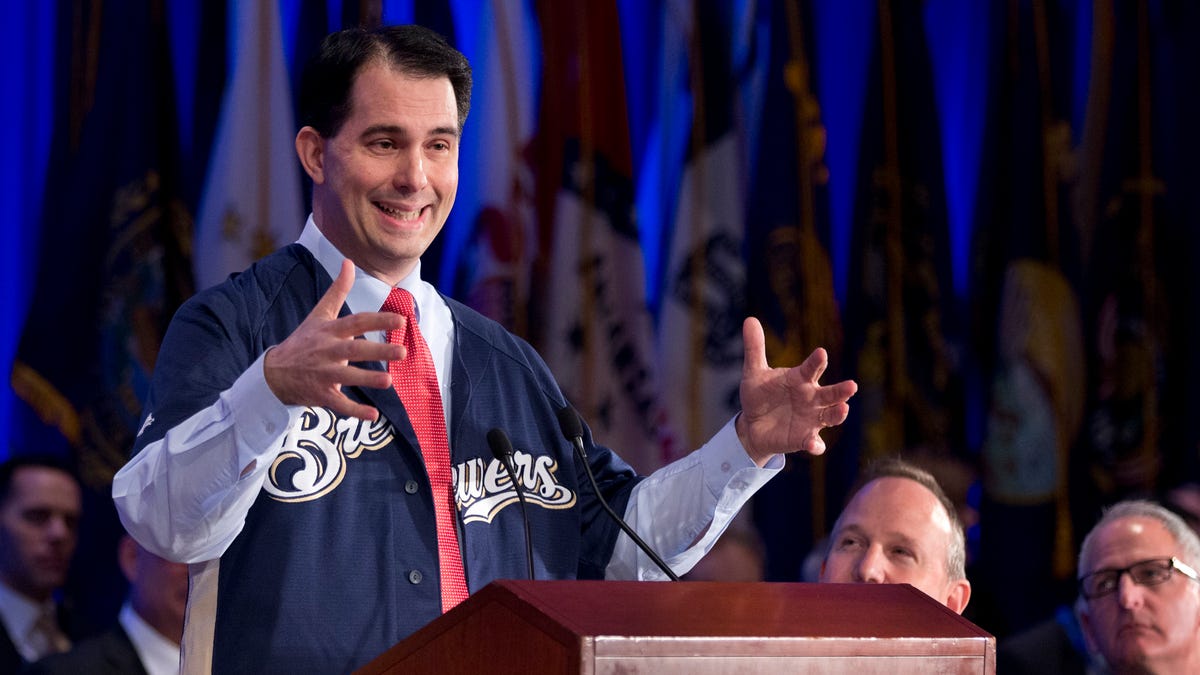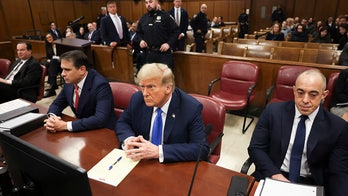
Saturday, Feb. 23, 2013: Wisconsin Gov. Scott Walker, in his state's pro baseball team the Milwaukee Brewers team jersey, talks at the National Governors Association 2013 Winter Meeting in Washington, D.C. (AP)
With the deadline for action less than a week away, exasperated governors are joining a push to intensify pressure on Congress to prevent a looming budget crisis.
Both Democrat and Republican chief executives, gathered in Washington for the National Governors Association annual meeting, warned of widespread economic fallout should Washington lawmakers fail to reach an 11th-hour compromise.
"I've not given up hope, but we're going to be prepared for whatever comes," said Nevada Gov. Brian Sandoval, a Republican. "There will be consequences for our state."
Maryland Gov. Martin O'Malley, a Democrat, said Saturday: "It's senseless and it doesn't need to happen. And it's a damn shame, because we've actually had the fastest rate of jobs recovery of any state in our region. And this really threatens to hurt a lot of families in our state and kind of flat line our job growth for the next several months."
Indeed, some governors expressed pessimism that both sides could find a way to avoid the automatic spending cuts set to begin March 1, pointing to the impasse as another crisis between the White House and Congress that spooks businesses from hiring and hampers their ability to construct state spending plans.
White House officials are scheduled to join several governors on Sunday morning television shows, where they're expected to continue a public education campaign designed to outline the real consequences of inaction. Members of President Barack Obama's Cabinet in recent days warned of widespread flight delays, shuttered airports, off-limit seashores and hundreds of thousands of furloughed employees spread across dozens of states.
Both Secretary of Transportation Ray LaHood and Secretary of Education Arne Duncan are scheduled to appear on national television. O'Malley is among the governors also set to be featured, along with Republican Govs. Bobby Jindal, of Louisiana, Bob McDonnell, of Virginia, and Arizona's Jan Brewer.
There are fewe signs of urgency among congressional leaders, who have recently indicated their willingness to let the cuts take effect and stay in place for weeks, if not much longer.
The cuts would trim $85 billion in domestic and defense spending, leading to furloughs for hundreds of thousands of workers at the Transportation Department, Defense Department and elsewhere.
Defense Secretary Leon Panetta has said the cuts would harm the readiness of U.S. fighting forces.
Obama has unsuccessfully pushed his approach of reducing deficits through a combination of targeted savings and tax increases. House Republicans have said reduced spending needs to be the focus and have rejected the president's demand to include higher taxes as part of a compromise.




